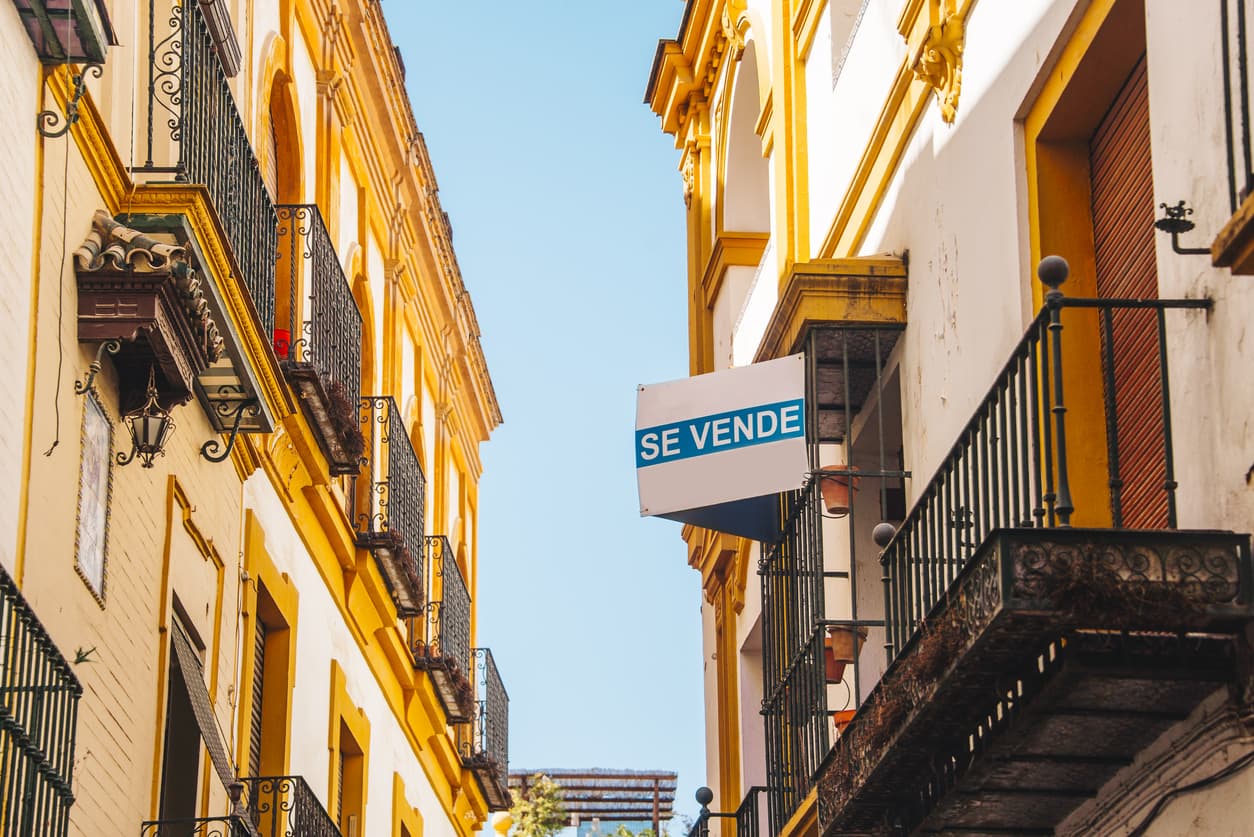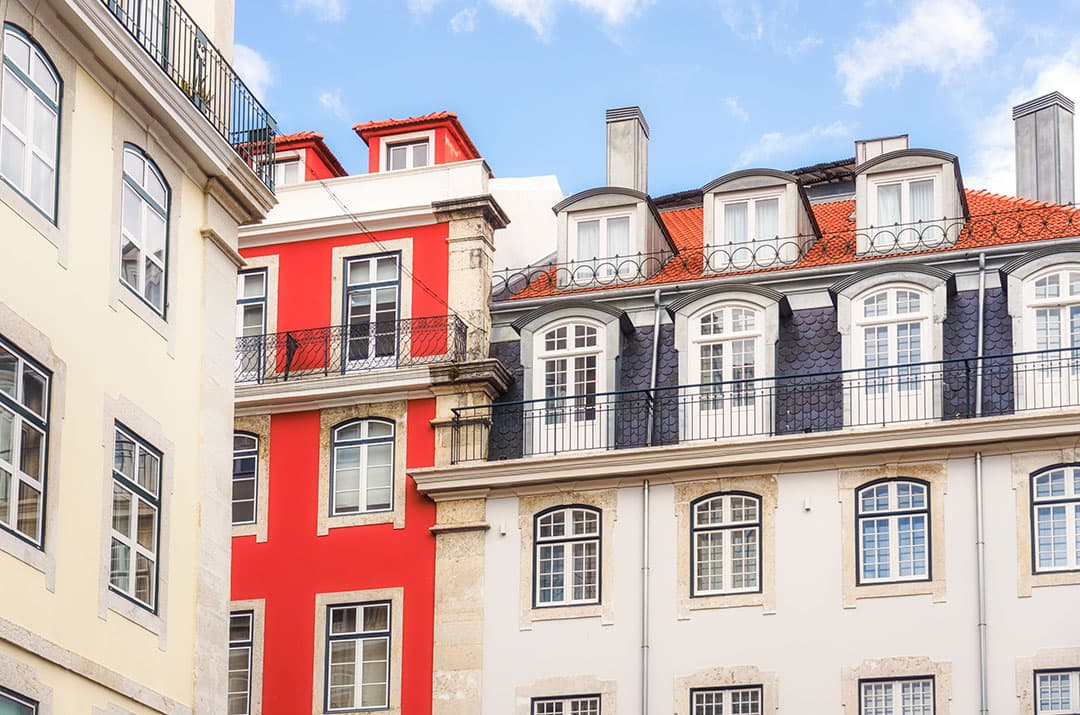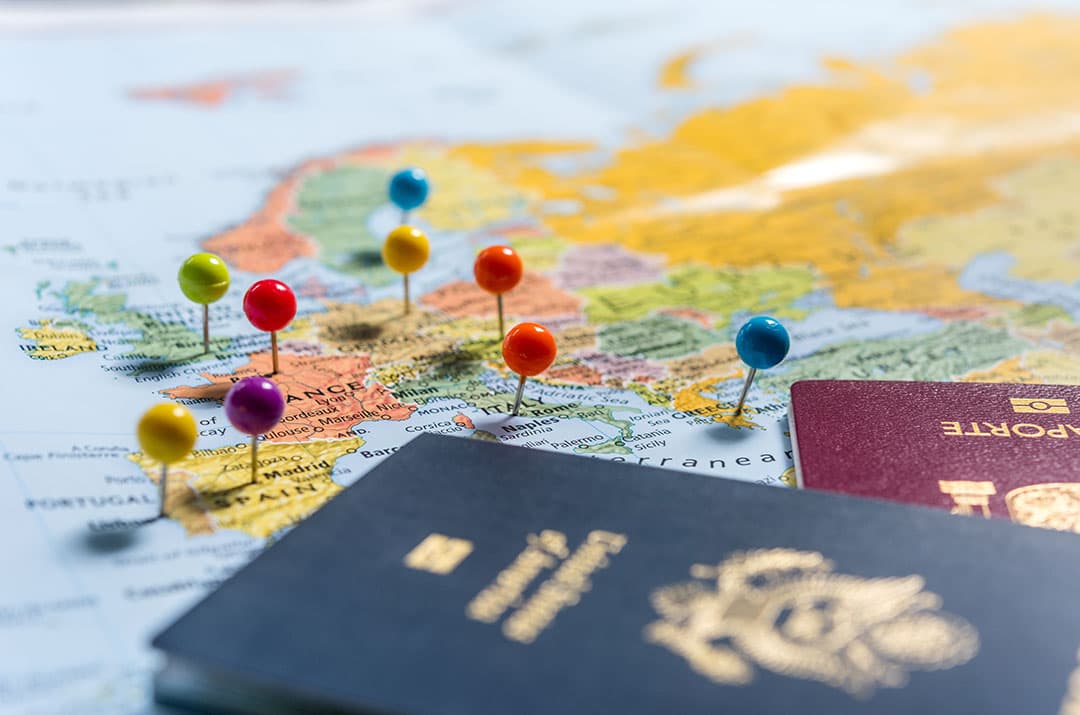- Home
- Blog
- Life Abroad
- How to purchase property in Spain as an expat

How to purchase property in Spain as an expat
Dreaming of owning an age-old farmhouse in the Spanish countryside, or a beautiful villa with your very own swimming pool? Our guide to buying a property in Spain as an expat can help you make your dream come true.
9 giugno 2021 — 11 min read
Bundling high living standards together with a healthy and pleasant climate, Spain is a much sought-after destination for expats. Whether you’ve moved to Spain for work or for retirement, one thing’s for sure—you’ll have to find somewhere to live.
Renting a property in Spain is a much cheaper option, we admit, but many expats choose to buy property in that country if they’re in it for the long haul.
Are you thinking of doing the same? Then you’ll have to know what the entire process of buying a property in Spain as an expat is like. Fortunately for you, we’ve prepared this comprehensive guide to help you out.
What’s the Spanish property market like?
At least 80% of residents in Spain own their property, with some of them doing so without any bank loan or mortgage. So, you can be pretty sure that Spain’s got high homeownership levels.
When the global financial crisis hit the property market, house prices in Spain fell by 30%. In the last few years, however, the market has become more or less stable. The first half of 2016 saw the Spanish housing market return to positive growth, with many expats buying properties in the coastal regions of Spain and in major cities.
In the backdrop of the pandemic, the average sale prices grew during the second quarter of 2020, although house sales declined. The period saw only 10,000 homes in Spain being sold to expats, as against 18,000-25,000 house sales in each quarter every year.
Can expats purchase property in Spain?
The government of Spain has always encouraged foreign investment in Spanish property, so buying one over there as an expat shouldn’t be an issue.
Before buying, you’ll need a special tax identification number known as the NIE (Número de Identificación del extranjero). It’s a nine-digit number starting with an ‘X’, and is issued to every expat in Spain who’s over the age of 14. The Spanish tax authorities need your NIE number to calculate how much tax you owe.
Once you’ve moved to Spain, you need to apply for your NIE number and your Spanish residence at the same time. To get your NIE number, visit your local police station with your passport.
Under the country’s Golden Visa program launched in 2013, you can get a residency visa by investing over €581,996 EUR ($709,600 USD) in Spanish properties. Golden Visas are mostly popular with real estate investors from outside the European Union (EU), but you can also avail of the scheme if you’re buying a Spanish holiday home or you’re retiring in Spain from abroad.
What are the average costs of various properties in Spain?
The price of a property will depend a lot on exactly where you want to live. Barcelona, Madrid, and San Sebastian have some of the most expensive properties in the country. To tone down the prices, you need to look for a property away from the city center and toward the suburbs.
We’ve made a comparison of the average prices of a two-bedroom, 60 m2 apartment in different areas of Spain below to help you out (with approximate US dollar conversions):
Madrid: €425,000 EUR ($518,180 USD)
Barcelona: €249,000 EUR ($303,590 USD)
Nájera, La Rioja: €53,000 EUR ($64,620 USD)
Castellón de la Plana: €73,000 EUR ($89,000 USD)
Torrevieja (on the Costa Blanca): €97,000 EUR ($118,270 USD)
What types of property can I buy in Spain as an expat?
New-build property and resale property
Property in Spain is of two types - resale and new-build. Resale property is an older or existing property that’s being sold. New-build, as the name suggests, is a brand-new property that no one has owned before.
There are two kinds of new-build property in Spain:
Key-ready: Also known as a turnkey property, it’s ready for you to move into, without any delay.
Off-plan: This property hasn’t been built yet or is under construction. There are plenty of off-plan sites in Spain, most of these being in Costa Blanca. You can choose your own color schemes and get involved in other parts of the design process, so buying off-plan in Spain will let you create your dream property.
Different types of property in Spain
The real estate sector in Spain is quite well-developed. From townhouses and
apartments to villas and farmhouses, you’ll be spoilt for choice while buying a property in that country.
Flats or apartments in cities are more popular among expats, since these are affordable, as well as easy to manage (no swimming pools to clean out or gardens to water, unless your apartment block has shared gardens and pools).
Townhouses or terraced properties may be either spacious or cramped, but these are your best bet if you’ve moved to Spain only for part of the year, or if you’re looking for holiday homes.
In case you want your own patio, swimming pool, and more space than a townhouse or an apartment can offer, you can buy yourself a villa. However, villas are the priciest property option in Spain, so keep checking up on your budget from time to time.
As for farmhouses, you’ll naturally find those in the countryside or in villages. Typically surrounded by a substantial amount of land, farmhouses located closer to the sea command higher prices than those that are deeper in the countryside.
How can I find and choose the right property in Spain?
Spanish property websites
You’ll find many websites and online portals listing Spanish properties and catering to various languages and nationalities.
These might tempt you to buy a home before you go to Spain, but we’d suggest you to not cut corners on the process. See the property for yourself and arrange a survey only when you’ve arrived in Spain, so that you don’t face any pitfalls later.
That said, searching online for a house to buy in Spain can give you a head start, so here goes:
Servihabitat. The map functionality on this English-language website lets you easily choose the place in Spain where you want to start looking for your new property.
Idealista. While searching for a property in Spain, you can add a great deal of filters like the type of property you wish to buy (homes, offices, commercial properties, land, or buildings), the desired price range, size, the number of bedrooms and washrooms, and whether it should have a terrace, swimming pool, air conditioning, garden, storage rooms, and other features.
thinkSPAIN. Another English-language website, it allows you to search not only by location, but also by the property ID.
Compracasa. Their English-speaking agents can make your search for a Spanish property easier.
Estate agents in Spain
Many bilingual estate agents in Spain are ready to deal with foreign buyers and provide tons of information about the region where you want to buy a property.
However, there might be unscrupulous estate agents as well, so be on your guard the moment someone asks you for payments upfront.
A sure-fire way of avoiding scammers is to choose an agent in your local area who holds a membership with the Agente de la Propiedad Inmobiliaria (API), Spain’s largest real estate organization.
Arranging a property survey in Spain
It isn’t legally necessary to have a house survey, but we highly recommend that you do so. A proper house survey helps you to make sure the property has no defects that can start bugging you after you’ve moved in.
With existing or resale properties, you can have two types of survey - a valuation report and a building survey.
Valuation reports gauge the market value of the property you want to buy. Building surveys dig deeper, finding out whether there are any serious issues with the property’s structural condition.
Understandably, valuation reports are cheaper than building surveys, so choose wisely.
Things to consider before purchasing a property in Spain
It’s quite easy for unscrupulous estate agents and developers to trick inexperienced expat buyers into purchasing Spanish properties that aren’t legitimate. And it’s just as easy for these buyers to fall into this trap.
So, before taking any unnecessary risks, ensure that:
The credentials of the estate agent or the independent lawyer are verified
The appropriate planning permission has been acquired before building the property
The quality of the property is up to scratch
The property doesn’t have any outstanding debts. To verify this point, check the land registry (Registro de la Propiedad).
You understand each and every contract you’re asked to sign
There’s adequate proof that any deposit or other amount you’ve paid is being spent like it should be.
You’ve got proof that you’ll get your money back if the property isn’t built (in case of off plan sites in Spain).
What’s the process of buying a property in Spain as an expat?
The steps for buying a property in Spain as an expat are nearly the same as those you’d follow if you were to buy a property in North America or in Europe. You’ll need to:
Choose a Spanish bank loan or mortgage that will suit you, so you can have an idea of your budget
Find the property you’ve been dreaming of
Make an offer to the seller and start negotiating until you both agree to a particular property price
Have your notary summarize your offer in writing
Go to the bank and finalize the loan or mortgage
Sign the preliminary contract (known as “contrato privado de compravento”) with the seller
Pay 10% of the purchase price as your deposit to the seller
Sign the sale contract (known as “escritura de de compravento”) with the seller in front of the notary
Pay the rest of the sale price, taxes, and any other outstanding costs to the seller
Register the property sale through your notary.
How do I finance a Spanish property purchase as an expat?
Get a Spanish bank loan/mortgage
Many expats arrange mortgages through Spanish banks to buy a property after moving to Spain.
The country has a well-developed banking sector, which means you can choose from a wide range of local as well as global banking brands. Naturally, the mortgage products will vary slightly from bank to bank.
Once you’ve moved to Spain and confirmed your legal residency, you can secure a mortgage by opening a bank account in Spain. Some of the largest Spanish banks offering mortgage products include Banco Santander, Bankia, Banco de Sabadell, and CaixaBank.
Several Spanish banks offer mortgages by working on a negotiated basis, so you might need a broker who can find the right mortgage for you. If you’re not using a broker’s services, check if the Spanish bank has an English-speaking staff member to help you.
During the mortgage arrangements, you might need to provide documents proving your income, expenses, and your current financial standing. This is how most banks in Spain will check your creditworthiness.
Down payments and deposits
Paying a deposit of 10% on your property price is the standard rule in Spain. It’s much easier to pay when you’ve opened a Spanish bank account.
But in case you haven’t opened one after moving to Spain, you’ll have to pay your deposit by transferring money from your home country to the seller.
It might entail a change of currencies, too, so the smartest way of doing that is by using an online international money transfer service like Xe.
You can utilize our free currency converter to quickly check the current exchange rates, but that’s not all. With Xe, you can also send money (up to $500,000 USD or its equivalent in any currency), quickly and safely, to more than 130 countries, including Spain.
What fees and taxes do I need to pay?
Of course, taxes and fees for buying a property in Spain as an expat vary from region to region. Some of these fees, like those for an estate agent or an independent lawyer, aren’t fixed.
You need to pay the majority of the costs, which include:
Legal fees: 1-2% of the property purchase price, including Value-Added Tax (VAT)
Property transfer tax: 6-10% (this is only for resale properties)
VAT: 10% (for new-build properties in Spain)
Land registration fee: 1-2.5% of the purchase price
Valuation fees: About €350 EUR
Notary costs: Normally 0.5-1%
Estate agent fees: Around 2-3% of the final sale price, usually paid by the seller
Stamp duty: 1.5% of the mortgage deeds (if you’re buying the property with a mortgage) or 1.5% of the purchase price
Buying a property in Spain as an expat can be quite challenging, but it’s easy once you get to know your way around the system. Follow these steps to make the purchase process smooth, and here’s to your new property in Spain!
All currency conversions mentioned are based on the USD/EUR exchange rate on May 30th, 2021.
Related Posts

5 marzo 2025 — 6 min read

4 novembre 2024 — 5 min read

8 ottobre 2024 — 2 min read

17 luglio 2024 — 4 min read

17 agosto 2023 — 7 min read

17 agosto 2023 — 7 min read